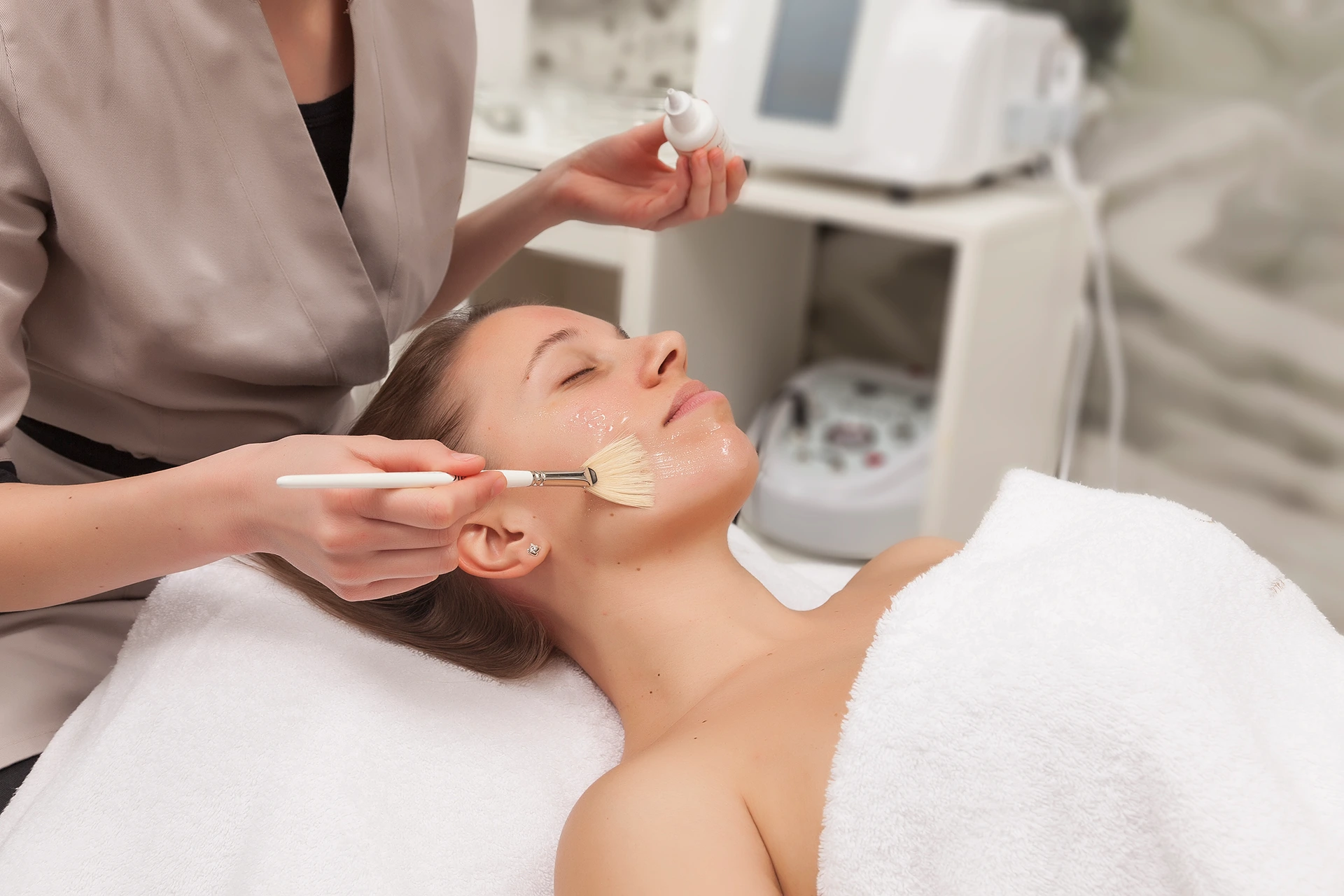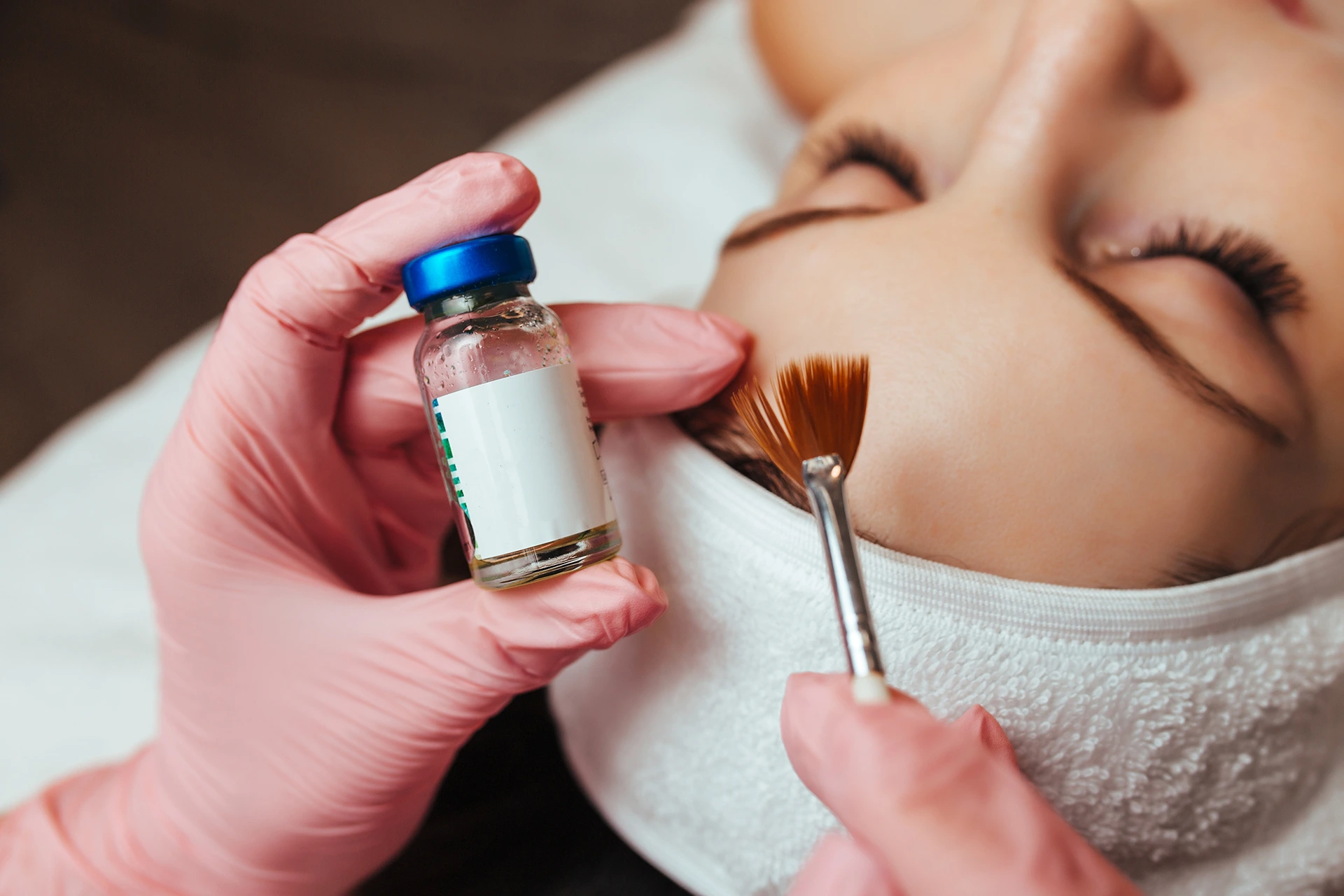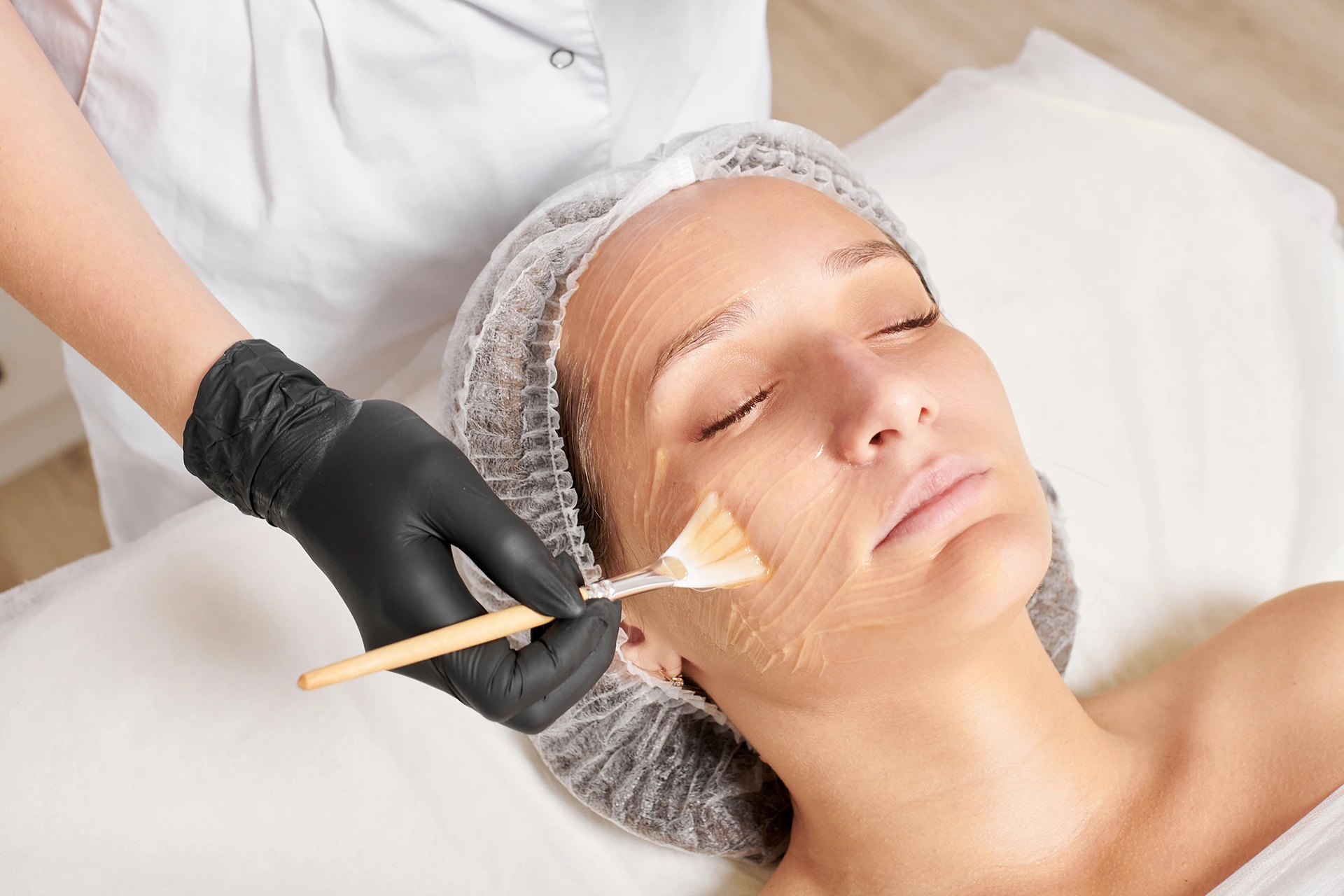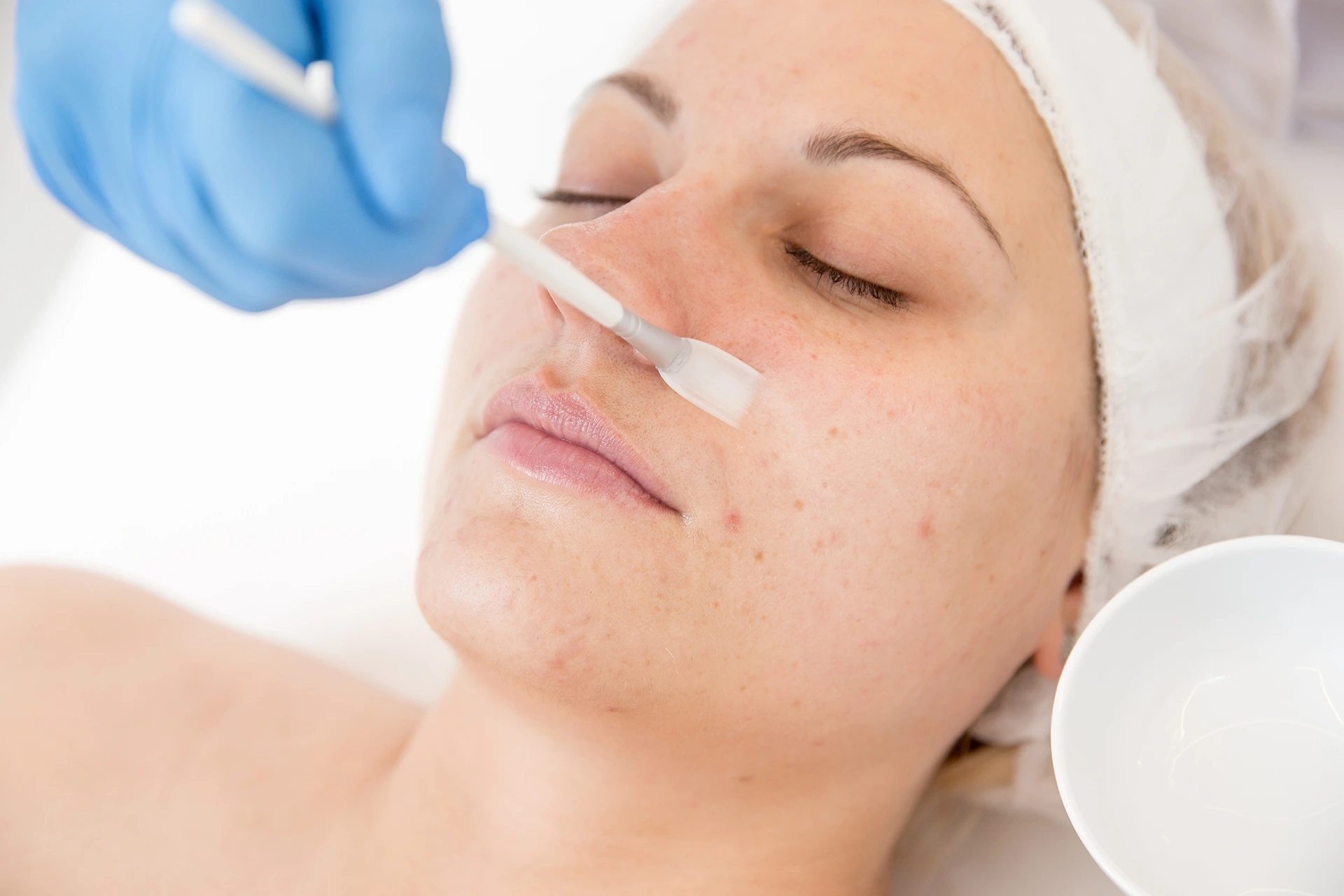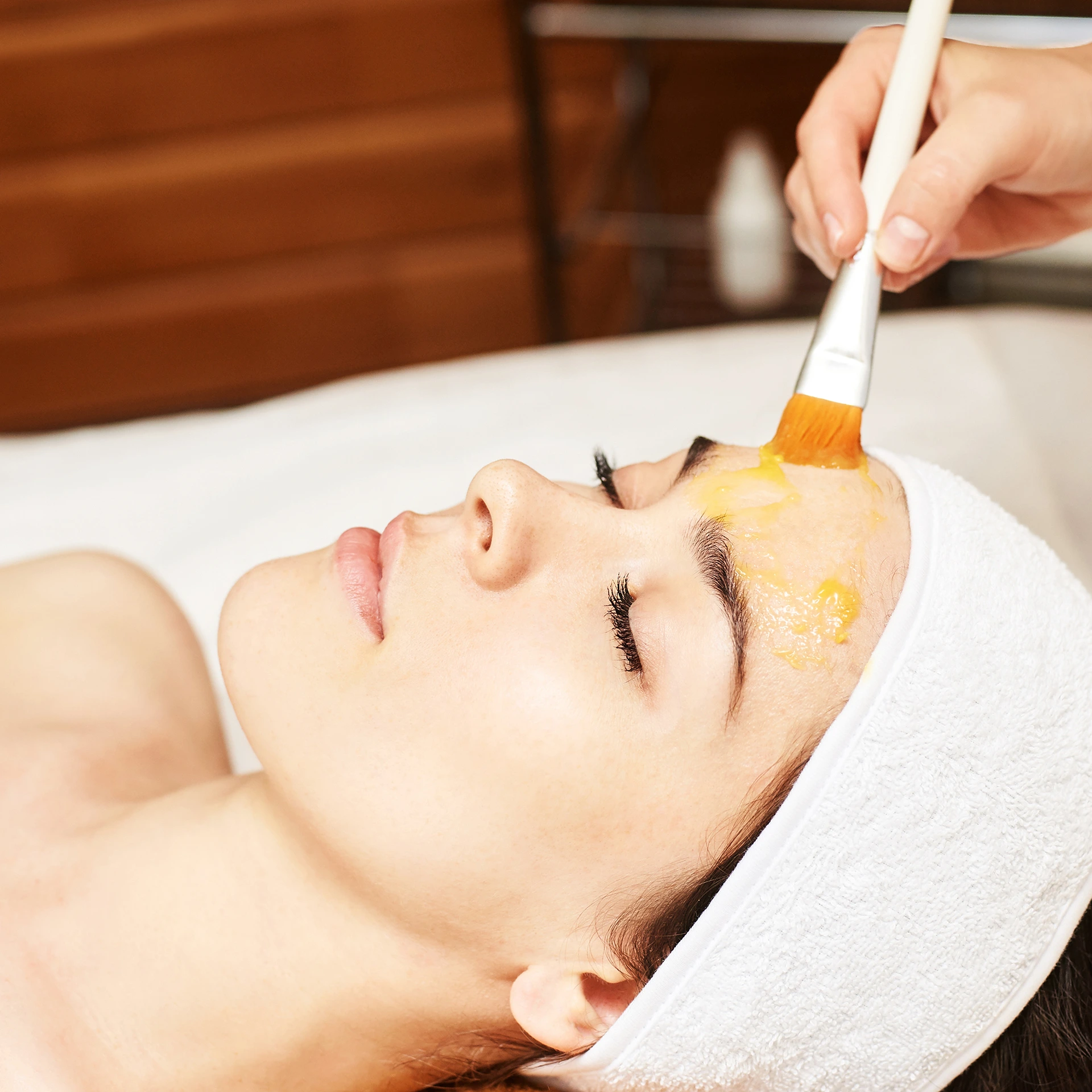All Your Questions Answered
Pregnancy comes with many changes for both mother and baby. As the body goes through hormonal fluctuations, pregnant women often notice changes in their skin too – things like melasma, acne breakouts, and dryness. Some may consider getting a chemical peel to treat these skin concerns.
Here at CosMedic Laser MD, we receive many questions about whether chemical peels can be done safely during pregnancy. With Dr. Deepa Macha’s expertise in cosmetic procedures and women’s health, we’ve developed comprehensive knowledge on this topic.
In this blog post, we’ll provide a thorough overview of how different types of chemical peels work, their associated risks during pregnancy, recommended precautions, and professional medical guidance from Dr. Macha.
What Are Chemical Peels?
Chemical peels involve applying a chemical solution to the skin that exfoliates the outer damaged layers and reveals smoother, rejuvenated skin underneath. There are different types and depths of chemical peels:
Light Peels – Use alpha hydroxy acids (AHAs) like glycolic or lactic acid to treat fine lines, dullness, melasma, and acne. Minimal downtime.
Medium Peels – Contain trichloroacetic acid (TCA) up to 30% to reach the epidermal layer. Treat age spots, pigmentation, mild scarring. Moderate downtime.
Deep Peels – Use high concentration TCA or phenol to penetrate the dermis. For severe sun damage, deep wrinkles, or scars. More aggressive with extended downtime.
The depth of the chemical peel determines its potency and effects on the skin. In general, light peels are the gentlest while medium and deep peels are much stronger.
How Do Chemical Peels Work?
- Exfoliating the outer layers of dead skin cells
- Stimulating collagen production and new skin regeneration
- Penetrating skin to various depths depending on peel strength
- Neutralizing free radicals and promoting healing
- Improving tone, texture, radiance and clarity
During a treatment, Dr. Macha applies the chemical solution, allowing it to sit for several minutes so it can penetrate the skin. The peel is then neutralized and washed off, revealing smoother skin underneath as it naturally sheds over the next few days.
Are Chemical Peels Safe During Pregnancy?
Whether chemical peels can be safely performed during pregnancy is a complex issue that depends on several factors.
In general, Dr. Macha does not recommend medium or deep chemical peels for pregnant women due to possible absorption risks. Light alpha hydroxy acid (AHA) peels may be acceptable in some cases but still require caution.
It is crucial for pregnant women to consult Dr. Macha first before any chemical peel procedure. She will thoroughly assess the treatment plan and advise on safety precautions and risks for both mother and developing baby.
What risks do chemical peels have during pregnancy?
Potential risks include toxicity/absorption issues, increased skin sensitivity, infections, medication reactions, and allergic responses that could harm the fetus. Dr. Macha carefully evaluates these risks before proceeding.
Can I get a facial chemical peel while breastfeeding?
Dr. Macha recommends avoiding chemical peels while breastfeeding as systemic absorption effects are still possible. Topical treatments like azelaic acid or laser genesis are safer temporary alternatives.
How can Dr. Macha treat my skin safely during pregnancy?
Beyond light chemical peels, she also offers topical brighteners, laser genesis, diet/lifestyle suggestions, melasma management, stretch mark prevention, and instruction on avoiding irritation and pigmentation issues.
Potential Risks of Chemical Peels During Pregnancy
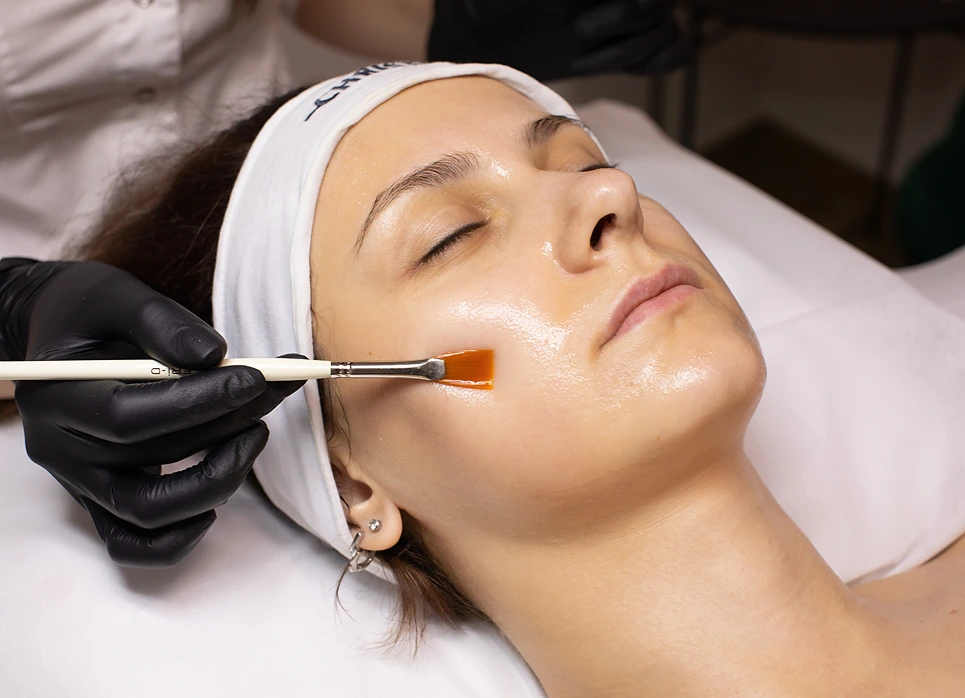
Dr. Macha evaluates several potential concerns with chemical peels during pregnancy:
- Systemic Absorption: Deep peels may be absorbed into the bloodstream and affect the fetus. TCA peels require close monitoring for toxicity.
- Skin Sensitivity: Pregnancy hormones like estrogen and progesterone increase skin sensitivity, raising chances of burns, scarring or hypo/hyperpigmentation from strong peels.
- Infection Risk: Chemical solutions can disrupt the skin’s protective barrier and introduce bacteria. This requires vigilance against infection which could harm the fetus.
- Medication Reactions: Peels may interact poorly and cause toxicity when mixed with pregnancy-safe topical acne medications like azelaic acid or erythromycin.
- Allergic Reactions: Pregnant women may develop new allergies or experience worsening reactions to peel ingredients due to shifting immunity.
Dr. Macha meticulously evaluates these concerns against potential benefits during consultations to determine appropriate peel treatment plans throughout pregnancy and postpartum.
How does pregnancy increase risks from chemical peels?
Hormone changes make skin more sensitive and absorption rates higher. Dr. Macha carefully adjusts chemical types and strengths accordingly. Immunity shifts also raise allergy risks.
What kinds of chemical peels does Dr. Macha recommend during pregnancy?
She advises against medium/deep TCA or phenol peels. Very light lactic or glycolic acid peels may be considered if skin tolerates small test areas well. Proper protocols are followed.
Recommendations for Chemical Peels During Pregnancy
Dr. Macha offers these recommendations regarding chemical peels for pregnant and breastfeeding women:
- Avoid medium or deep TCA/phenol peels due to higher risk of toxicity and absorption. The safety profile is insufficiently studied during pregnancy.
- Very light glycolic or lactic acid peels may be considered on small test spots first to assess skin tolerance. Use minimal concentrations and contact time.
- Any peels should only be performed during the second trimester when absorption risks are lower. Avoid during the first and third trimesters.
- Smaller body areas like the hands or feet can be treated more safely than facial peels which may trigger systemic reactions.
- Topical skin-brightening alternatives like arbutin, niacinamide, azelaic acid, and vitamin C are safer options during pregnancy. Or consider laser genesis.
- Deeper peels often require repeat treatments spaced 2-4 weeks apart which is not ideal during pregnancy. Stick to one-off lighter peels only.
- Always inform the aesthetician about your pregnancy before any peel procedure so proper precautions are taken.
Dr. Macha performs meticulous health screenings and only proceeds with chemical peels when she determines the minimal risks are outweighed by potential benefits for a patient’s unique situation. Maximum safety is paramount.
Professional Guidance From Dr. Macha
As an experienced double board certified cosmetic physician, Dr. Macha offers professional guidance for pregnant and breastfeeding women considering chemical peels.
During your personalized consultation at CosMedic Laser MD, Dr. Macha will:
- Review your full health history and any pre-existing conditions that may increase risks
- Assess your skin goals, type and reasons for wanting a chemical peel
- Determine your trimester and any complications with your pregnancy
- Thoroughly explain possible risks of peels and absorption effects on the developing fetus
- Create a customized treatment plan with the safest peel type, strength and application approach
- Provide instructions on ideal timing during pregnancy or postpartum when peels may be safer
With her advanced expertise and prudent approach, Dr. Macha makes sure all risks are minimized and your skin goals can be safely and effectively met, even during pregnancy.
Pregnancy-Safe Skincare at CosMedic Laser MD
In addition to customized chemical peel advice, Dr. Macha can provide pregnant and breastfeeding women with:
- Safe topical skin treatments to improve melasma, acne, dryness and other concerns
- Laser Genesis instead of peels for gentle resurfacing with no chemicals
- Clear justification for why any peel is warranted and best application guidelines
- Management of new skin issues like chloasma and stretch marks
- Instruction on avoiding unwanted pigmentation and irritation
- Lifestyle and diet tips for healthy pregnant skin
With over 15 years of experience in both cosmetic dermatology and OBGYN, Dr. Macha has the skills to help address your skin changes during pregnancy and postpartum stages.
Let Dr. Macha Guide You Safely
Navigating skincare like chemical peels during pregnancy can be a complex topic filled with risks and ambiguities. Having an expert like Dr. Deepa Macha on your side ensures you get the best possible advice tailored to your health status.
To learn more about your options and develop a fully-customized skin treatment plan for before, during and after pregnancy, schedule a private consultation today at CosMedic Laser MD. Dr. Macha looks forward to helping you meet your skin goals safely.
FAQs on Chemical Peels During Pregnancy
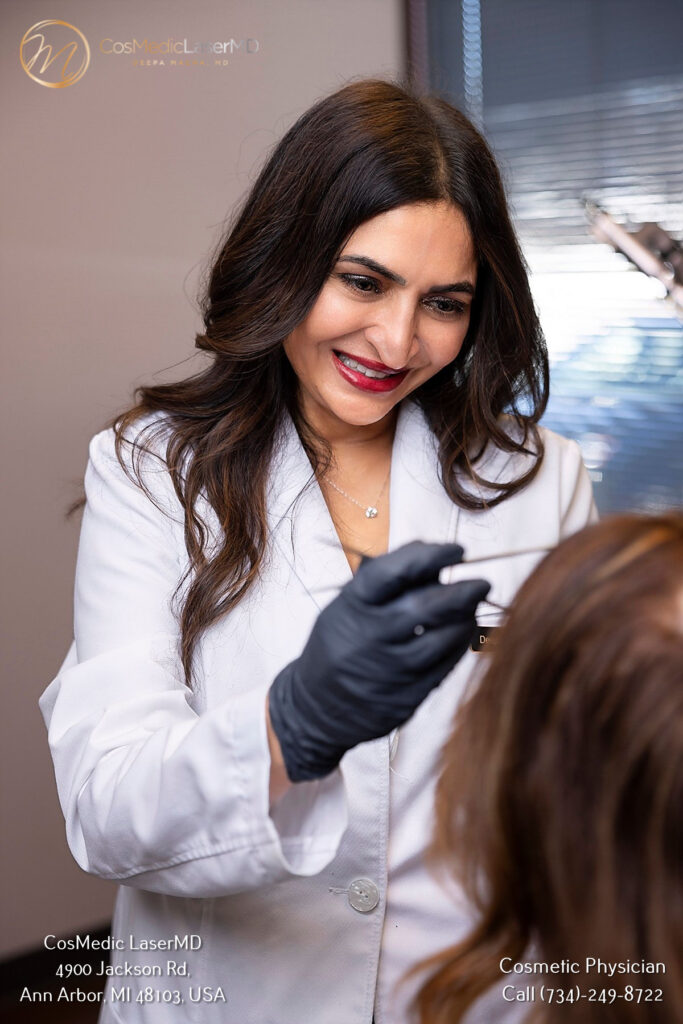
Are chemical peels safe to get while pregnant?
It depends on the type and strength. Dr. Macha does not recommend medium/deep TCA or phenol peels. Very light AHAs may be safe in some cases but require caution. Proper medical guidance is crucial.
When during pregnancy is it safest to get a chemical peel?
Chemical peels should only be performed during the second trimester when absorption risks are lowest, if Dr. Macha deems it safe. Avoid peels during the first and third trimesters.
Can chemical peels be done after pregnancy instead of during?
Yes, postponing deeper peels until after delivery is safer. Dr. Macha may recommend light peels during the second trimester only. Deeper peels can be revisited later once no longer pregnant or breastfeeding.
What results can I expect from a light peel during pregnancy?
Minor improvements in tone, texture, melasma, acne, etc. Light peels give subtle effects. Dr. Macha manages expectations realistically based on limited peel options deemed safe during pregnancy.
When should I schedule a consultation about chemical peels during pregnancy?
Consult Dr. Macha as soon as possible when considering chemical peels while pregnant. She needs to evaluate your health history and trimester early to determine risks, precautions and viability of any peel procedures.

